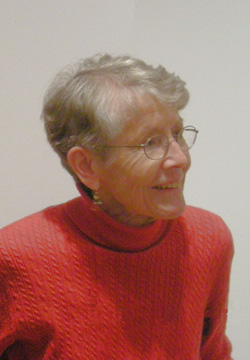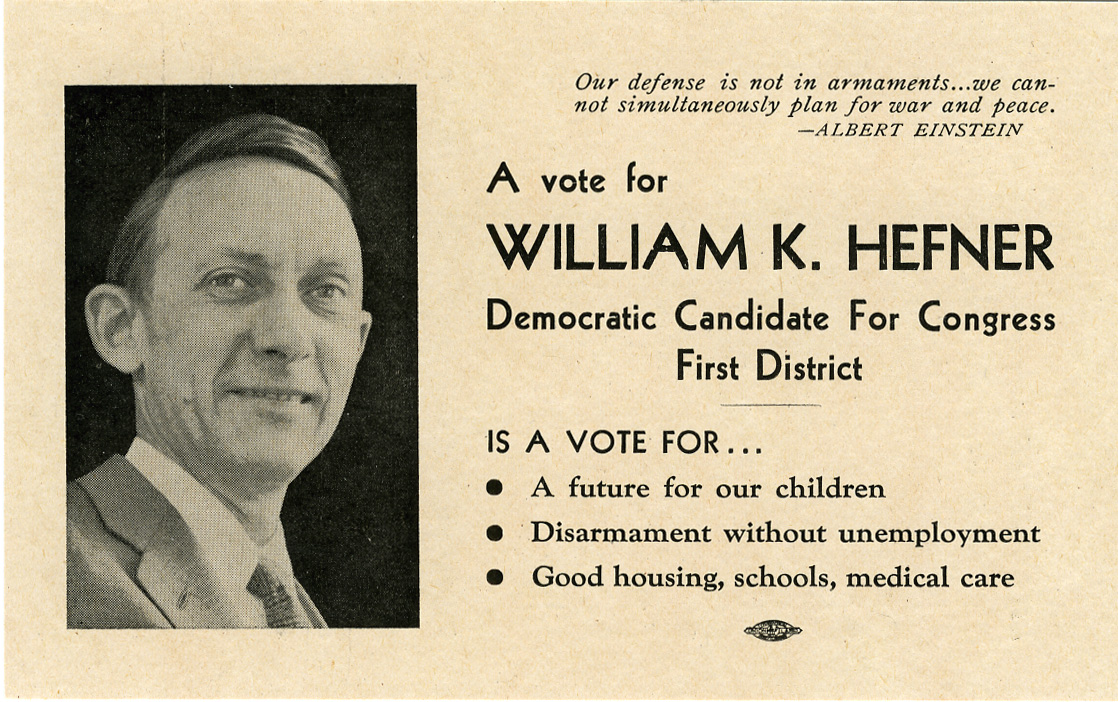Caleb Foote Papers
1915-1996
3 boxes 4.5 linear feet
Call no.: MS 1013
A legal scholar and pacifist, Caleb Foote was born in Cambridge, Mass., on March 26, 1917, the son of a Unitarian minister and Quaker mother. Earning degrees in history from Harvard (AB 1939) and economics from Columbia (MA 1941), Foote was hired by the Fellowship of Reconciliation to organize their northern California office as the U.S. entered the Second World War. A committed conscientious objector, he refused assignment to a Civilian Public Service camp, arguing that the draft was undemocratic and “an integral part of the war effort,” thus earning a sentence of six months in prison. When released, Foote resumed his work with the Fellowship, opposing the internment of Japanese Americans, but ran afoul of the Selective Service a second time in 1945, earning an additional eighteen months. After a presidential pardon in 1948, Foote became Executive Director of the Central Committee for Conscientious Objection, but left after two years to return to school, hoping a law degree might aid him in the cause of addressing racial and economic injustice. He held academic positions in law schools at the University of Nebraska (1954-1956), Penn (1956-1965), and Berkeley (1965-1987), becoming well known for his opposition to a bail system that unfairly burdened the poor and falsely accused, among other causes. Foote died in Santa Rosa, Calif., in 2006, shortly before his 89th birthday.
An extraordinary archive of principled resistance to war, the Foote collection contains a thorough record of one man’s experience as a conscientious objector during the Second World War. Accompanying some of the legal proceedings associated with Foote’s refusal of assignment to Civilian Public Service is an extensive correspondence with family while imprisoned and other associated content. Foote also retained important material from his wartime work with the Fellowship of Reconciliation and later work with the CCCO. His later correspondence provides an important perspective on his developing legal career, particularly the earlier years, and an extensive series of essays and autobiographical writings provides critical personal and intellectual context for Foote’s pacifism and legal practice. The collection also includes some correspondence and writings by and about Foote’s education, his father, Henry Wilder Foote, and mother.
Gift of Robert Foote, Feb. 2018
Subjects
Central Committee for Conscientious ObjectorsFellowship of ReconciliationLawyersPacifists--United StatesWorld War, 1939-1945--Conscientious objectorsContributors
Foote, Henry Wilder, 1875-1964



